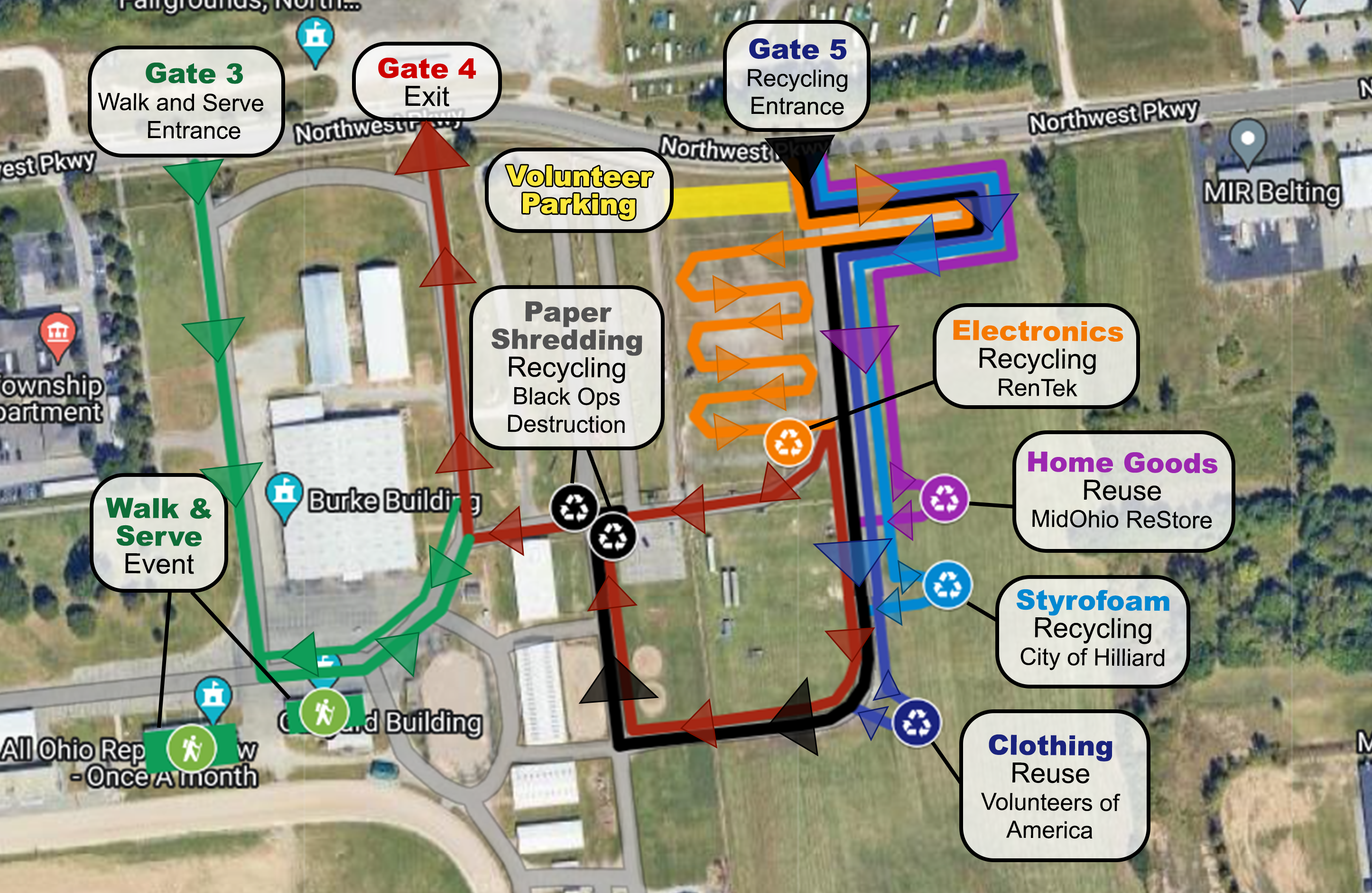
Bottle Deposit in Ohio?
October 14, 2014Destination Hilliard
October 31, 2014The City of Seattle made headlines this past month when they enacted an ordinance that requires residents and businesses to compost “food waste and compostable paper” or else they will face a fine. Unlike the city of Hilliard, which collects two bins, one for trash and one for recycling, the city of Seattle has a three bin system with the third bin being for compostable waste.
In recent years, many municipalities have done a good job at removing compostable waste from the trash stream that heads to the landfill, especially yard waste. According to the U.S. Composting Council, 62% of yard waste generated in the U.S. was collected separately and kept out of landfills. Still, they estimate that only 20% of the compostable waste that could be collected is actually being diverted.
According to the EPA, 25-40% of all waste could be composted, depending on the composting process used. Benefits of taking this material out of the waste stream include saving landfill space so that new landfills do not need to be constructed, potential reduction in methane gas emissions that occur when compostable materials break down, and an end product that can be used as a fertilizer for landscapes and crops.
Seattle is not the first city to enact a composting requirement. Composting has been required in San Francisco since 2009 and New York City has been considering the feasibility of a similar program. The fine imposed by the City of Seattle is a small one, $1/residential trash can and $50/business dumpster that contains compostable waste that should have been separated. The potential benefits to the environment are high and composting is widely accepted to be a positive step for people as an environmentally sustainable practice. The question remains, however, should a municipality force people to engage in sustainable practices, through force of law, or is that a step too far? What about the costs that a restaurant business might incur in complying with such an ordinance? Would a better approach simply be to expand outreach programs to teach the community about the benefits of composting and how to do it properly on a voluntary basis? What do you think? Would you like to see the City of Hilliard include curbside pick-up of compostable waste? How would you like to see such a program implemented? Leave your reply in the comment box for discussion.




